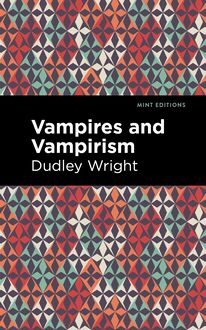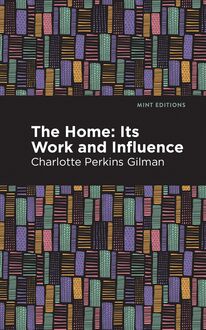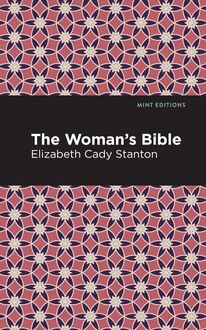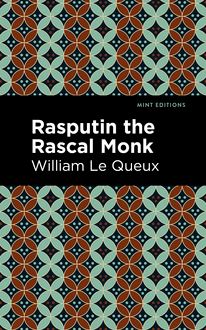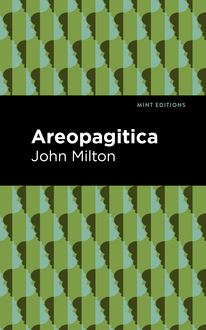-
 Univers
Univers
-
 Ebooks
Ebooks
-
 Livres audio
Livres audio
-
 Presse
Presse
-
 Podcasts
Podcasts
-
 BD
BD
-
 Documents
Documents
-
- Cours
- Révisions
- Ressources pédagogiques
- Sciences de l’éducation
- Manuels scolaires
- Langues
- Travaux de classe
- Annales de BEP
- Etudes supérieures
- Maternelle et primaire
- Fiches de lecture
- Orientation scolaire
- Méthodologie
- Corrigés de devoir
- Annales d’examens et concours
- Annales du bac
- Annales du brevet
- Rapports de stage
La lecture à portée de main
Vous pourrez modifier la taille du texte de cet ouvrage
Découvre YouScribe en t'inscrivant gratuitement
Je m'inscrisDécouvre YouScribe en t'inscrivant gratuitement
Je m'inscrisEn savoir plus
Vous pourrez modifier la taille du texte de cet ouvrage
En savoir plus

Description
The Home: Its Work and Influence (1903) is a sociological study by American author and feminist Charlotte Perkins Gilman. Inspired by her work as a social reformer and advocate for women’s suffrage, Gilman sought to write a work of nonfiction that explained the role of the home as a human institution, as well as to address the problems and inequities of home life—especially for women.
In the beginning, Gilman argues that “[e]very human being should have a home.” The role of the home in human society, she claims, is not only to provide safety and comfort, but to facilitate the productivity, creativity, and individuality of every person. Despite this, the home has evolved far slower than all other human institutions, ensuring that the life of humanity has failed to progress as far as its ideals would suggest. Having identified this problem—as well as shown that women bear responsibility for maintaining households while men control the home as a system of power—Gilman moves through such topics as domesticity, cooking, entertainment, and children in order to properly identify the highly gendered roles of each member of the home. Ultimately, Gilman argues that a progressive home will benefit not only each individual within the family unit, but the whole of society at large. The Home: Its Work and Influence is a powerful work of sociological thought by a leading reformer and feminist of her day.
With a beautifully designed cover and professionally typeset manuscript, this edition of Charlotte Perkins Gilman’s The Home: Its Work and Influence is a classic of American literature and nonfiction reimagined for modern readers.
Sujets
Informations
| Publié par | Mint Editions |
| Date de parution | 05 janvier 2021 |
| Nombre de lectures | 0 |
| EAN13 | 9781513274836 |
| Langue | English |
| Poids de l'ouvrage | 2 Mo |
Informations légales : prix de location à la page 0,0500€. Cette information est donnée uniquement à titre indicatif conformément à la législation en vigueur.
Extrait
The Home
Its Work and Influence
Charlotte Perkins Gilman
The Home: Its Work and Influence was first published in 1903.
This edition published by Mint Editions 2021.
ISBN 9781513269832 | E-ISBN 9781513274836
Published by Mint Editions®
minteditionbooks .com
Publishing Director: Jennifer Newens
Design & Production: Rachel Lopez Metzger
Typesetting: Westchester Publishing Services
C ONTENTS I. I NTRODUCTORY II. T HE E VOLUTION OF THE H OME III. D OMESTIC M YTHOLOGY IV. P RESENT C ONDITIONS V. T HE H OME AS A W ORKSHOP: T HE H OUSEWIFE VI. T HE H OME AS A W ORKSHOP: T HE H OUSEMAID VII. H OME- C OOKING VIII. D OMESTIC A RT IX. D OMESTIC E THICS X. D OMESTIC E NTERTAINMENT XI. T HE L ADY OF THE H OUSE XII. T HE C HILD AT H OME XIII. T HE G IRL AT H OME XIV. H OME I NFLUENCE ON M EN XV. H OME AND S OCIAL P ROGRESS XVI. L INES OF A DVANCE XVII. R ESULTS
T WO C ALLINGS
I
I hear a deep voice through uneasy dreaming,
A deep, soft, tender, soul-beguiling voice;
A lulling voice that bids the dreams remain,
That calms my restlessness and dulls my pain,
That thrills and fills and holds me till in seeming
There is no other sound on earth—no choice.
“Home!” says the deep voice, “Home!” and softly singing
Brings me a sense of safety unsurpassed;
So old! so old! The piles above the wave—
The shelter of the stone-blocked, shadowy cave—
Security of sun-kissed treetops swinging—
Safety and Home at last!
“Home” says the sweet voice, and warm Comfort rises,
Holding my soul with velvet-fingered hands;
Comfort of leafy lair and lapping fur,
Soft couches, cushions, curtains, and the stir
Of easy pleasures that the body prizes,
Of soft, swift feet to serve the least commands.
I shrink—half rise—and then it murmurs “Duty!”
Again the past rolls out—a scroll unfurled;
Allegiance and long labor due my lord—
Allegiance in an idleness abhorred—
I am the squaw—the slave—the harem beauty—
I serve and serve, the handmaid of the world.
My soul rebels—but hark! a new note thrilling,
Deep, deep, past finding—I protest no more;
The voice says “Love!” and all those ages dim
Stand glorified and justified in him;
I bow—I kneel—the woman soul is willing—
“Love is the law. Be still! Obey! Adore!”
And then—ah, then! The deep voice murmurs “Mother!”
And all life answers from the primal sea;
A mingling of all lullabies; a peace
That asks no understanding; the release
Of nature’s holiest power—who seeks another?
Home? Home is Mother—Mother, Home—to me.
“Home!” says the deep voice; “Home and Easy Pleasure!
Safety and Comfort, Laws of Life well kept!
Love!” and my heart rose thrilling at the word;
“Mother!” it nestled down and never stirred;
“Duty and Peace and Love beyond all measure!
Home! Safety! Comfort! Mother!”—and I slept.
II
A bugle call! A clear, keen, ringing cry,
Relentless—eloquent—that found the ear
Through fold on fold of slumber, sweet, profound—
A widening wave of universal sound,
Piercing the heart—filling the utmost sky—
I wake—I must wake! Hear—for I must hear!
“The World! The World is crying! Hear its needs!
Home is a part of life—I am the whole!
Home is the cradle—shall a whole life stay
Cradled in comfort through the working day?
I too am Home—the Home of all high deeds—
The only Home to hold the human soul!
“Courage!—the front of conscious life!” it cried;
“Courage that dares to die and dares to live!
Why should you prate of safety? Is life meant
In ignominious safety to be spent?
Is Home best valued as a place to hide?
Come out, and give what you are here to give!
“Strength and Endurance! of high action born!”
And all that dream of Comfort shrank away,
Turning its fond, beguiling face aside:
So Selfishness and Luxury and Pride
Stood forth revealed, till I grew fierce with scorn,
And burned to meet the dangers of the day.
“Duty? Aye, Duty! Duty! Mark the word!”
I turned to my old standard. It was rent
From hem to hem, and through the gaping place
I saw my undone duties to the race
Of man—neglected—spurned—how had I heard
That word and never dreamed of what it meant!
“Duty! Unlimited—eternal—new!”
And I? My idol on a petty shrine
Fell as I turned, and Cowardice and Sloth
Fell too, unmasked, false Duty covering both—
While the true Duty, all-embracing, high,
Showed the clear line of noble deeds to do.
And then the great voice rang out to the turn,
And all my terror left me, all my shame,
While every dream of joy from earliest youth
Came back and lived!—that joy unhoped was truth,
All joy, all hope, all truth, all peace grew one,
Life opened clear, and Love? Love was its name!
So when the great word “Mother!” rang once more,
I saw at last its meaning and its place;
Not the blind passion of the brooding past,
But Mother—the World’s Mother—come at last,
To love as she had never loved before—
To feed and guard and teach the human race.
The world was full of music clear and high!
The world was full of light! The world was free!
And I? Awake at last, in joy untold,
Saw Love and Duty broad as life unrolled—
Wide as the earth—unbounded as the sky—
Home was the World—the World was Home to me!
I
I NTRODUCTORY
I n offering this study to a public accustomed only to the unquestioning acceptance of the home as something perfect, holy, quite above discussion, a word of explanation is needed.
First, let it be clearly and definitely stated, the purpose of this book is to maintain and improve the home. Criticism there is, deep and thorough; but not with the intention of robbing us of one essential element of home life—rather of saving us from conditions not only unessential, but gravely detrimental to home life. Every human being should have a home; the single person his or her home; and the family their home.
The home should offer to the individual rest, peace, quiet, comfort, health, and that degree of personal expression requisite; and these conditions should be maintained by the best methods of the time. The home should be to the child a place of happiness and true development; to the adult a place of happiness and that beautiful reinforcement of the spirit needed by the world’s workers.
We are here to perform our best service to society, and to find our best individual growth and expression; a right home is essential to both these uses.
The place of childhood’s glowing memories, of youth’s ideals, of the calm satisfaction of mature life, of peaceful shelter for the aged; this is not attacked, this we shall not lose, but gain more universally. What is here asserted is that our real home life is clogged and injured by a number of conditions which are not necessary, which are directly inimical to the home; and that we shall do well to lay these aside.
As to the element of sanctity—that which is really sacred can bear examination, no darkened room is needed for real miracles; mystery and shadow belong to jugglers, not to the truth.
The home is a human institution. All human institutions are open to improvement. This specially dear and ancient one, however, we have successfully kept shut, and so it has not improved as have some others.
The home is too important a factor in human life to be thus left behind in the march of events; its influence is too wide, too deep, too general, for us to ignore.
Whatever else a human being has to meet and bear, he has always the home as a governing factor in the formation of character and the direction of life.
This power of home-influence we cannot fail to see, but we have bowed to it in blind idolatry as one of unmixed beneficence, instead of studying with jealous care that so large a force be wisely guided and restrained.
We have watched the rise and fall of many social institutions, we have seen them change, grow, decay, and die; we have seen them work mightily for evil—or as mightily for good; and have learned to judge and choose accordingly, to build up and to tear down for the best interests of the human race.
In very early times, when the child-mind of inexperienced man was timid, soft, and yet conservative as only the mind of children and savages can be, we regarded all institutions with devout reverence and fear.
Primitive man bowed down and fell upon his face before almost everything, whether forces of nature or of art. To worship, to enshrine, to follow blindly, was instinctive with the savage.
The civilised man has a larger outlook, a clearer, better-ordered brain. He bases reverence on knowledge, he loses fear in the light of understanding; freedom and self-government have developed him. It does not come so readily to him to fall upon his face—rather he lifts his face bravely to see and know and do. In place of the dark and cruel superstitions of old time, with the crushing weight of a strong cult of priests, we have a free and growing church, branching steadily wider as more minds differ, and coming nearer always to that final merging of religion in life which shall leave them indistinguishable. In place of the iron despotisms of old time we have a similar growth and change in governments, approaching always nearer to a fully self-governing condition. Our growth has been great, but it has been irregular and broken by strange checks and reversions; also accompanied, even in its heights, by parallel disorders difficult to account for.
In all this long period of progress the moving world has carried with it the unmoving home; the man free, the woman confined; the man specialising in a thousand industries, the woman still limited to her domestic functions. We have constantly believed that this was the true way to live, the natural way, the only way. Whatever else might change—and all things did—the home must not. So sure were we, and are we yet, of this, that we have utterly refused to admit that the home has changed, has grown, has improved, in spite of our unshaken
-
 Univers
Univers
-
 Ebooks
Ebooks
-
 Livres audio
Livres audio
-
 Presse
Presse
-
 Podcasts
Podcasts
-
 BD
BD
-
 Documents
Documents
-
Jeunesse
-
Littérature
-
Ressources professionnelles
-
Santé et bien-être
-
Savoirs
-
Education
-
Loisirs et hobbies
-
Art, musique et cinéma
-
Actualité et débat de société
-
Jeunesse
-
Littérature
-
Ressources professionnelles
-
Santé et bien-être
-
Savoirs
-
Education
-
Loisirs et hobbies
-
Art, musique et cinéma
-
Actualité et débat de société
-
Actualités
-
Lifestyle
-
Presse jeunesse
-
Presse professionnelle
-
Pratique
-
Presse sportive
-
Presse internationale
-
Culture & Médias
-
Action et Aventures
-
Science-fiction et Fantasy
-
Société
-
Jeunesse
-
Littérature
-
Ressources professionnelles
-
Santé et bien-être
-
Savoirs
-
Education
-
Loisirs et hobbies
-
Art, musique et cinéma
-
Actualité et débat de société
- Cours
- Révisions
- Ressources pédagogiques
- Sciences de l’éducation
- Manuels scolaires
- Langues
- Travaux de classe
- Annales de BEP
- Etudes supérieures
- Maternelle et primaire
- Fiches de lecture
- Orientation scolaire
- Méthodologie
- Corrigés de devoir
- Annales d’examens et concours
- Annales du bac
- Annales du brevet
- Rapports de stage

